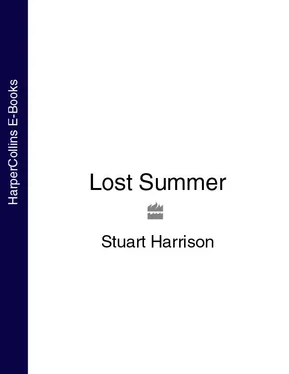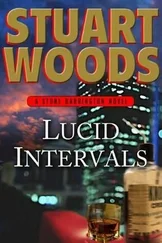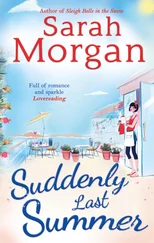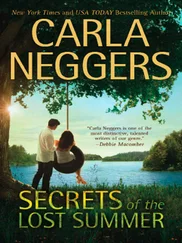A year ago he had decided that he couldn’t do this kind of work any more. At least not if he was trying to make up for something that had happened seventeen years earlier. After his divorce from Louise he had begun to seriously question the direction his life was taking. Louise wasn’t the first casualty of the guilt he felt about Meg Coucesco. There had been others over the years, all of them eventually driven away. Maybe getting married had been an expression of a subconscious desire to change, as writing the autobiography of a spoiled pop star had been a conscious one. Neither had worked. Besides, nothing was ever that simple. Even now as he listened to Helen Pierce he felt a familiar stirring of interest. He hadn’t felt that way for a while.
‘Why do you think your brother’s death wasn’t an accident?’ he asked, conveying no judgement either by his tone or expression.
She took a visible breath. ‘Ben was killed with two of his friends when their car left the road and rolled down a hill. The police report said that Ben was driving and the autopsy showed that his blood alcohol level was four times the legal limit. But that can’t be right. Ben didn’t drive. I mean he couldn’t drive. He didn’t know how. And he didn’t drink either. At least not to the extent the police are claiming. I’ve never known him to have more than the odd beer.’
‘Then how do you explain the autopsy report? Mistakes are very rare.’
She gave a quick impatient shake of her head, her eyes flashing a brittle defensiveness. ‘I can’t explain it. But I know, I knew, my brother.’
‘Tell Adam why Ben didn’t drink,’ Karen prompted gently.
‘Since he was a child he’d suffered from epilepsy. It was controllable though he still had the occasional seizure, but he had to take medication every day. Something called Lamictal. Drinking reacted with the drug and made him violently ill.’
‘Is it possible he had stopped taking his medication when the accident happened?’ Adam asked.
‘No. The autopsy report showed that it was present in his blood.’
Her point, Adam thought, was interesting rather than compelling. At least from the point of view of a detached third party, which was always the role he forced himself to take, at least initially. ‘How old was Ben?’
‘Nineteen. He was studying at London University.’
‘You said that he didn’t drive. That’s unusual for somebody of his age.’
‘It was because of his illness,’ Helen explained. ‘Legally he wasn’t allowed to hold a driving licence. Even though his medication largely controlled his condition he still sometimes had seizures.’
‘So, what exactly made the police so sure he was driving when the accident happened?’
‘He was behind the wheel when the car was found, still wearing his seatbelt. Look, I know how it looks. I can understand why the police drew the conclusions they did.’
‘But you still think they have it wrong?’
‘I’m certain of it. I wish there was some way I could convince you. It’s here, inside, that I know that somehow this is all wrong.’
She put her hand against her chest. Her expression was intense and her eyes almost pleaded for him, for somebody, to listen to her. He felt instinctively that she was genuine. Not everybody was. Sometimes it wasn’t even intentional, just a kind of self-delusion, a refusal to accept the facts. In the past he had chosen the cases he worked on not because of any revelatory fragment of information he had learned when he interviewed relatives, but because he was moved by their certainty, their instinct about what had happened to their child. Often there was nothing solid to go on. He felt Helen’s instinct was true, but on the face of it the police appeared to have drawn the logical conclusion.
‘Tell me this,’ he said. ‘If you don’t believe your brother’s death was an accident, then what do you think happened?’
The pleading in her eyes turned to defeat, frustration. ‘That’s the trouble. I just don’t have an answer to that question. Believe me I’ve thought about it, I’ve looked at this from every possible angle, I’ve even doubted myself on occasions. I’ve wondered if the police were right, if it was just one of those terrible things, a momentary lapse of judgement. If something made Ben act out of character and he got drunk and then for some reason he got behind the wheel of that car. Sometimes I’ve even half believed that. If enough people tell you that you’re wrong, Mr Turner, believe me after a while you start to wonder, no matter what your convictions are.’
‘And yet despite the evidence … ?’
‘I still can’t accept it. And I can’t simply stand by and do nothing. I tried to get the coroner to listen to me at the inquest, but he accepted the police version of events. The verdict was accidental death.’
‘Why don’t you tell Adam about the protest, Helen,’ Karen interjected.
‘The protest?’
‘Ben had just finished his first year of an arts degree. Last year he got involved with an environmental group through some people he met at university. They lobby against habitat destruction, the use of pesticides and so on, organizing petitions and protests, that sort of thing. To be honest I don’t think Ben was as committed as a lot of them. He cared about the issues like most of us do, but he was never really a political person. He got involved through a girl he met. Her name was Jane Hanson. She was a year or so older than him, very pretty, very serious type. I met her once when he brought her round to the flat. I think she’d been involved in the protest at Newbury when she was at school, she came from that way somewhere, and she was completely immersed in this sort of thing.’
Something in her tone struck Adam. Was it a faint trace of bitterness? Jealousy perhaps.
‘Anyway, she was taking part in a protest during the summer,’ Helen went on. ‘A group of activists were trying to prevent some woodland being cut down to make way for a holiday camp and Ben decided to go with her. They’d dug tunnels and built tree huts and all that sort of thing to keep the bulldozers out. That was in June. He was supposed to come back in September, but he was killed a week before he should have left.’
‘There had been a lot of bad feeling between locals and some of the protesters,’ Karen added.
‘Some people were beaten up, threats were made, that sort of thing,’ Helen explained.
‘Was Ben threatened personally?’
‘I think so. He mentioned on the phone that there had been some incidents but it was nothing serious, at least not that I know of.’
‘The police knew about this?’
‘I imagine they did. Yes, I’m sure they did.’
‘Do you think there could be a connection between the protest and your brother’s death?’
He saw her indecision as she considered how to answer, and guessed that it was tempting for her to say yes, to latch onto anything that might make some kind of sense, but to her credit she shook her head wearily.
‘To be honest I just don’t know. I can’t say that Ben ever gave me the impression that there was anything sinister going on. It was just the sort of clashing between groups you’d expect really. It’s possible that he wouldn’t have said too much though. He wouldn’t have wanted to worry me.’
‘What about this girl you mentioned, Jane Hanson? Was she in the car when the accident happened?’
‘No,’ Helen answered, her mouth tightening. ‘She left the protest a week earlier.’
‘Have you spoken to her or anybody else from the camp to see if the threats were any more serious than Ben told you?’
‘I haven’t spoken to Jane, but I did go to the camp. Nobody there seemed to think there was any reason why Ben would have been singled out.’
Читать дальше





![Маргарет Миллар - Rose's Last Summer [= The Lively Corpse]](/books/384369/margaret-millar-rose-s-last-summer-the-lively-c-thumb.webp)






